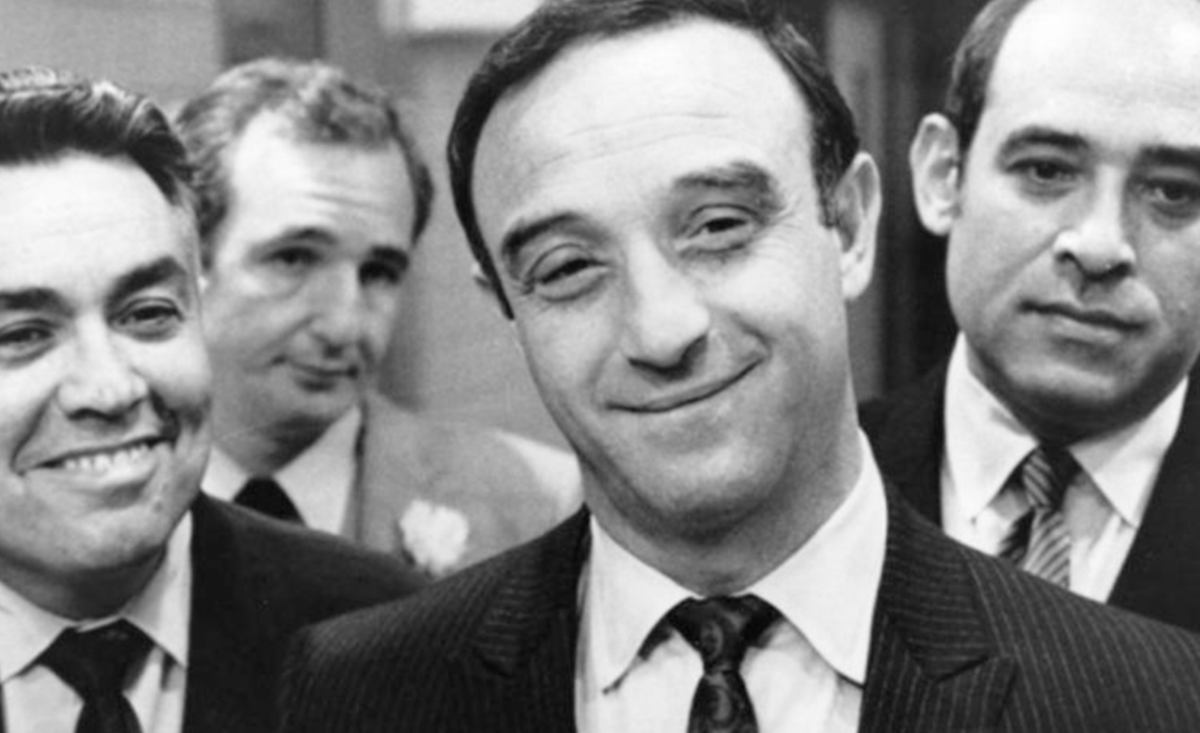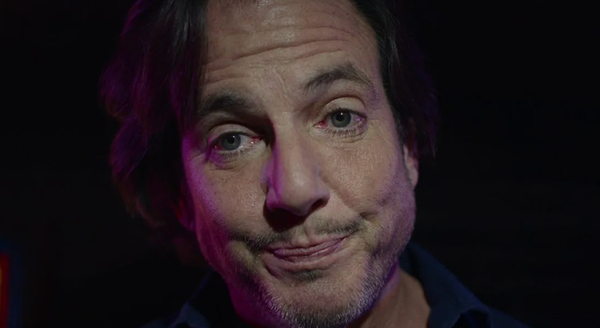Finding a film
Musing on the concept of art that just goes missing.

This week, I watched The Plot Against Harry on Criterion Channel. I had recently heard about the film for the first time, either via some podcast or another or via an announcement from Vinegar Syndrome, a collective of film restorers and distributors that offers a truly dizzying array of movies you've never heard of before from throughout the history of the medium of film. (VS has a great-looking release of The Plot Against Harry on sale that I'll eventually pick up.)
The movie was made by Michael Roemer, a sometime independent filmmaker who was a teacher and Guggenheim Fellow at Yale for over 40 years. The Plot Against Harry concerns a small-time Jewish gangster who is released from a stint in prison to find his numbers racket has been largely usurped. He begins some new ventures and in time he begins reconnecting with his estranged family and larger Jewish community in New York. A redemptive Jewish gangster story ... you know; that old saw.
The Plot Against Harry was filmed in 1969 and, unable to find a distributor, ran at one theater for one week in 1971. That was the end of The Plot Against Harry, as Roemer was awarded his Fellowship that same year and embarked on his teacher career in earnest. Twenty years after making the movie, Roemer decided to put all of his independent films on videotape for his family. While transferring the media, he heard the technician laughing at the movie and made a decision to have two 35mm prints of The Plot Against Harry made as well. The film was submitted to and screened at the 1989 New York and Toronto film festivals, and for the first time, people actually saw this movie.
It is a little surprising that the film couldn't find a distributor in 1969. Yes, it seems extremely niche for the time, but this is the same year that Midnight Cowboy was the third-highest-grossing movie of the year. In fact, just looking at the domestic top 10 at the box office for 1969 yields a handful of movies that The Plot Against Harry would have easily slid in alongside: Cactus Flower; Bob & Carol & Ted & Alice; Goodbye, Columbus ... Easy Rider, for god's sake. Let's not forget that this was also during the rise of Melville, Truffaut, Godard, Bresson, Buñuel, Fellini, Pasolini, and others internationally. The Plot Against Harry would work very well as a comedown from Godard's Alphaville from 1965, or Frankenheimer's Seconds from 1966.
It isn't a film out of time, and it's remarkably well-directed, acted and scripted. The titular character is portrayed by Martin Priest, who kicked around for a few decades, mostly getting cast in single episodes of television series, with his most notable role apart from The Plot Against Harry coming as "License Clerk" in five episodes of The Doctors in the '70s. In another universe, you can easily imagine Priest becoming part of the repertory players in films by Scorsese, Brest, Coppola, or especially Cassavetes. Honestly, this is a man who seems constructed in a lab to be part of the Cassavetes aesthetic. But no one ever saw The Plot Against Harry, so Priest continued apace, and at the end of things, doesn't even merit having his own Wikipedia page.
For a long time, I've been fascinated by the concept of missing films. For the formative years of the cinema, films sent out to theaters were viewed as expendable and dispensable commodities. They were shipped out, passed around, and then discarded. Films that broke at movie houses would have the busted bits snipped out and then patched back together with tape, and when the whittled-down reels no longer made sense, they were pitched out. (The combustible nature of early celluloid, as famously depicted in Inglourious Basterds, was another reason that most movie houses chose to rid themselves of reels no longer in demand, rather than store or – god forbid – preserve them.)
There are thousands of movies that no one will ever see again, and most of the people who actually saw those movies is dead. But the much more fascinating thing (in my opinion) is that quite often, in some far-flung corner of the world, people will suddenly stumble upon a movie or short or reel that everyone assumed was lost to time forever. For just a small sampling of these finds, I recommend checking out the Wikipedia page for the list of Oswald the Lucky Rabbit shorts. These pre-Mickey Mouse Walt Disney shorts often went missing, but you can see the strange histories at work here: "Discovered in Japan in 2018"; "Discovered in Belgium in 2016"; "Rediscovered in a vault in England in 2011"; "Original 1928 print found in the United Kingdom in 2014." And on and on.
The true film sickos still hold out hope that someday a wall will be cracked out somewhere and Erich von Stroheim's full nine-hour, 42-reel cut of Greed will tumble out, but the truth is that the vast majority of these lost films are truly gone forever. Granted, many of these missing films were churned out with little art by journeymen, so the Greeds of the world are the minority, but it is still a strange thing to create art that was distributed and displayed and patronized; art that people paid money for, but then was placed into the garbage can.
Sure; on a long enough timeline, all art is disposable. All art at some point is lost, or forgotten. We artists like to imagine that the art we create will live on and be preserved; that we'll be the Starry Night behind plexiglass, or at least one of those Degas pieces they have at the Norton Simon Museum in Pasadena. But art will crumble and fade. Performance art and live theatre are meant to be art that exists only in the moment, and only to the viewer or observer.
Film and music are (we like to imagine) the notable exceptions here. Art that is reproducible, shareable, and has copies that are mass manufactured will surely persist, won't it? The truth is that it will persist only if there are people around who wish it to. The conservators and collectors and benefactors that allow this art to continue on. That's why I'm so enamored of what seem to be an endless array of obscure-film distributors these days: Vinegar Syndrome, Criterion, Kino Lorber, Arrow Films, Shout! Factory, and so many more.
None of us may open a basement someday and find a long-thought-extinct 16mm reel of an actual movie, but if we search hard enough, we can find a film we never knew about, and in the case of The Plot Against Harry, find something that not even its filmmaker considered to be wonderful.



